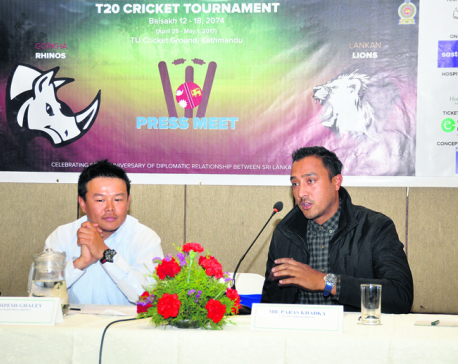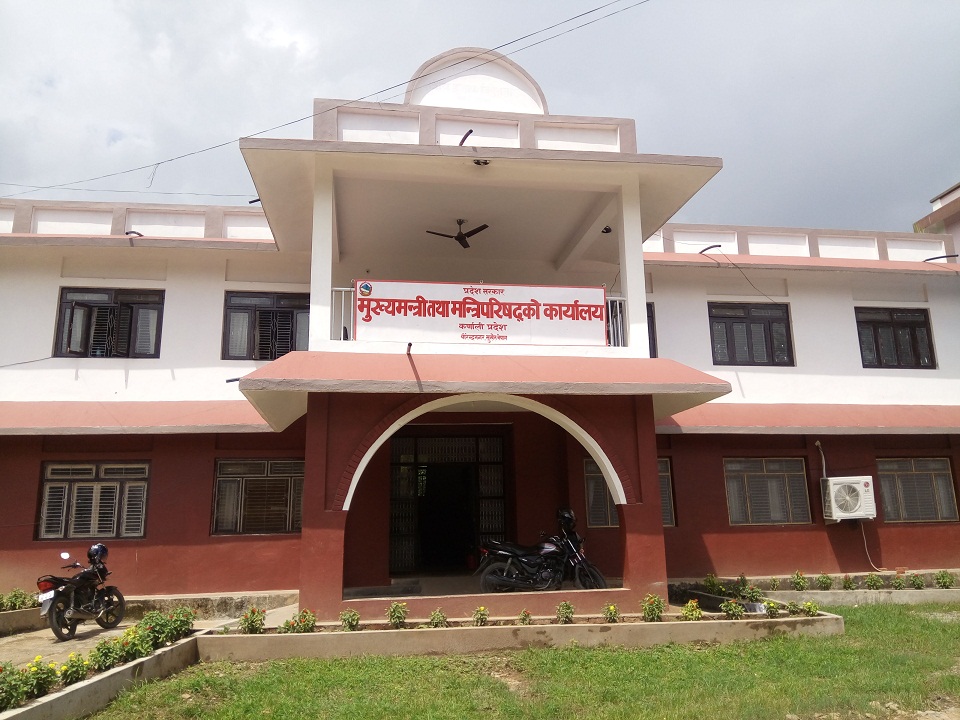
OR
Pushpa Kamal Dahal’s tenure
Pushpa Kamal Dahal’s second inning as prime minister got off to a rocky start. He had become prime minister with the support of Nepali Congress on August 4, 2016, after his immediate predecessor as PM, KP Sharma Oli, was deemed unwilling to amend the constitution to the liking of the protesting Madhesi parties. PM Dahal’s remit was thus to clear the path for the three sets of elections stipulated in the new constitution by taking the Madhesi parties into confidence. Although the protesting Madhesi outfits had backed the ouster of Oli and supported the formation of the new Dahal government, they did not join it. In fact, they soon declared that Dahal was as unwilling to address Madhesi grievances as Oli had been. But Dahal never stopped trying to forge broad political understanding. Soon after assuming office his government tabled a second amendment motion in parliament, which, had it passed, would have addressed most concerns of Madhesi parties. In the event, that motion had to be withdrawn and was replaced by another constitution-amendment proposal. But just like the previous motion, this too was not supported by CPN-UML, the main opposition, and hence was stuck in parliament.
To Dahal’s credit, even as he made every attempt to woo the Madhesi outfits, he seemed as determined to ensure that the three sets of elections are completed by the constitutionally mandated end-date of January 2018, without the support of the small Madhesi parties if need be. Thus, in February this year he announced that local level election, which had not been held for nearly two decades, would finally take place on May 14. When the announcement was made, most Nepalis were skeptical about its feasibility without first settling the broader political issues. It didn’t help that the Election Commission was given just over 80 days to prepare for it, the shortest timeframe made available to the commission for an election in Nepal’s democratic history. When Dahal realized that it would be difficult to hold election in the Tarai-Madhes without a prior constitutional settlement—which was not forthcoming without UML’s support—he declared that local election would now take place in two phases, the first phase on May 14 and the second phase on June 14. As the first phase was being held in areas with minimal presence of Madhesi parties, these parties didn’t strongly object to it. Perhaps they too realized that it would be unwise to try to disrupt the popular election.
With the first phase of election now over, and elected local governments already in place in many areas covered in the first phase, the momentum for the second phase is gradually building. Perhaps Dahal was aware of the domino effect of the first phase and hence his determined push for it. There were other noteworthy achievements. Along with first phase of local election, Dahal’s second tenure as PM will perhaps be best remembered for his government’s decision to sign on to China’s OBOR initiative, which has opened a world of new opportunities for the small land-locked country. There has been meaningful progress on projects of national importance like the Kathmandu-Tarai fast-track and Pokhara International Airport. Inflation is down and the economy is looking up again, with the World Bank now projecting the economy to grow by a more-than-healthy 7.5 percent this fiscal. Successful holding of the international investment summit (with its US $13.5 billion in FDI commitment), drastic reduction in load-shedding, revival of vital state institutions like Nepal Drugs, a visible improvement in healthcare outcomes for poor Nepalis are among other worthy achievements of Dahal government.
Dahal can thus leave office with his head held high, even though it erred badly in some instance, for example in deciding to bring an impeachment motion against a sitting Chief Justice without any justifiable reason. (Yet it was also at the time of his government that the footloose CIAA Chief, Lokman Singh Karki, was booted out of office.) The post-quake rebuilding efforts have also been far from satisfactory in this time. But all in all, it was a good ten months, during which time Dahal has been able to resurrect, to a degree, the sinking image of himself as well as his party. It bodes them well this election season.
Now the onus is on Sher Bahadur Deuba to build on Dahal’s legacy and ensure that the remaining elections are completed on time under the watch of the same Congress-Maoist coalition. After hitting his lowest ebb on the CJ impeachment, Deuba too now has a chance to prove that he is no less competent administrator than Dahal.
You May Like This

201 tested positive for Scrub Typhus in two months
CHITWAN, Sept 26: As many as 201 people have been detected with Scrub Typhus during the past two months. ... Read More...

Nepal to play against Sri Lankan stars in next month’s T20 series
KATHMANDU, March 22: Nepal will host acclaimed cricketers of Sri Lanka in a three-match Twenty20 Cricket Series at the TU grounds,... Read More...

Scrub Typhus claims nine in six months
RATNANAGAR (Chitwan), Oct 19: As many as 631 people have been found with the infection of Scrub Typhus and Dengue diseases... Read More...


Just In
- MoEST seeks EC’s help in identifying teachers linked to political parties
- 70 community and national forests affected by fire in Parbat till Wednesday
- NEPSE loses 3.24 points, while daily turnover inclines to Rs 2.36 billion
- Pak Embassy awards scholarships to 180 Nepali students
- President Paudel approves mobilization of army personnel for by-elections security
- Bhajang and Ilam by-elections: 69 polling stations classified as ‘highly sensitive’
- Karnali CM Kandel secures vote of confidence
- National Youth Scientists Conference to be organized in Surkhet

















Leave A Comment